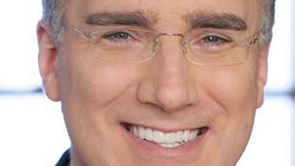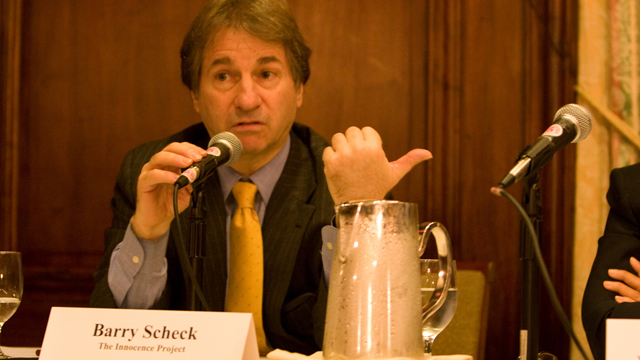Explaining the Rise of Cable Commentary and the Demise of TV Journalism

If you are like me, you probably turn on cable news and wonder how did we get to this state? What accounts for the commentary-driven programming at MSNBC and Fox News? What explains the decline of CNN? Across cable, why is there an almost universal emphasis on horse race, strategy coverage and a relative absence of substantive, context based public affairs journalism? Is there any hope for reversing these trends?
Michael Wolf takes on some of these questions in this Vanity Fair column, explaining the changes at CNN and how the cable news network continues to survive financially despite flagging ratings and falling behind Fox and MSNBC in primetime viewership. As Wolf describes, being “dull, bland, worthy, consistent, has a market.” CNN’s earnestness enables the network to charge higher fees to cable systems. This characteristic also makes the network attractive to advertisers, despite flagging ratings. As Wolf writes:
A cable operator would be making a politically controversial statement if it carried just Fox and MSNBC. CNN now makes its money by charging cable operators a premium fee to avoid such controversy. Similarly, advertisers want to be on CNN because it is not Fox. To advertise on CNN associates you with respectability—while advertisers on Fox are associated with Bill O’Reilly. Even if you want the Fox audience, also making a CNN buy gives you cover.
Wolf also notes another important revenue stream for CNN: Its turn to being a content syndicator to other news organizations, playing the role via its Web reports of news services such as the Associate Press.
In class this week with my undergraduates here at American University, I also addressed with them these questions. I pointed them in the direction of the work of Duke University economist James T. Hamilton and his book “All the News That’s Fit to Sell.” In his account, Hamilton describes how the interaction between technological changes, economics, and audience behavior has warped the content and nature of both broadcast and cable TV news.
As he notes, the rise of cable TV in the early 1980s meant that a channel or programmer no longer had to capture an audience of 20 million to earn a profit. Instead, niche programming appealing to audiences as small as 1 million could still generate revenue. This model allows a network such as Fox or MSNBC to adhere to one ideological segment of viewers over another, creating the incentive to brand themselves in terms of ideology rather than news. The 24 hour news cycle, the need to limit costs, and the need to arouse emotion to keep audiences locked in, also led to cable networks preferring a talk and commentary format over hard news (which requires teams of reporters, bureaus, and in Wolf’s terms tends to be too earnest and bland.)
Hamilton, his book written before the widespread emergence of blogs, notes also the influence of the Internet on cable news. In particular—and especially in today’s world of blog dominance—the internet shapes mainstream news organizations by putting a premium on commentary while also promoting the spread of misinformation, rumors, and falsehoods, now a staple of programming at both Fox and MSNBC.
In fact at MSNBC in particular, during the 2008 election, I began to notice a revealing trend. Prime time programming such as Keith Olberman’s Countdown, the Chris Matthews Show, and the Rachel Maddow Show appeared to follow closely the agenda and framing of posts appearing earlier in the day at the Huffington Post. If in the golden age of broadcast news, the networks would follow closely the agenda of stories and frames appearing at the New York Times, in today’s world of ideologically-focused cable commentary, blog sites were now driving the agenda and discussion.
There’s more to Hamilton’s account that deserves attention and that I will be returning to in later posts. Tomorrow, I will post an interview with a faculty colleague who brings a unique perspective to understanding the future of television news.
To close, here’s gossip blogger Perez Hilton in an interview with Big Think arguing that the trend towards celebrity coverage at mainstream news outlets”is only a positive thing.” What do readers think?
Question: Why should anyone care about the gossip on your site?
Perez Hilton: I don’t think anybody should care about the gossip I put on my site. You know. You don’t have to read it. The great thing about it is it’s... I like to think of my website as, like, the McDonald’s of the Internet. A lot of people love to criticize McDonald’s, but yet it’s still really popular. And I love the french fries.
Question: Why do people crave gossip?
Perez Hilton: I think gossip is... people’s interest in gossip is nothing new. It’s been around for decades. It’s been around for centuries. The only thing that’s changed is the media has become aware that celebrity news can be profitable. So, gossip, or celebrity news, is now mainstream news.
Question: Do you think celebrity news should be mainstream news?
Perez Hilton: I don’t know, but I know that celebrity news is mainstream news. I know that Anderson Cooper has discussed Lindsey Lohan many times and he probably hates it. But you know what? He will continue to discuss about celebrity news and he will continue to talk about Lindsey Lohan.
Question: Do you think the shift to celebrity coverage in the mainstream news is a good thing?
Perez Hilton: I still think that mainstream news is very valuable, invaluable. Mainstream news is just doing their job. If they weren’t making money, they wouldn’t be able to provide us with the news. So they have to have that celebrity element there so that they can get ratings. But you know, not all the times. There are those shows that have nothing to do with politics. But there’s been a shift, definitely, over the last five or 10 years, where there is a lot more celebrity content in mainstream news.
Question: Do you think that trend affects people’s perception of the world positively or negatively?
Perez Hilton: I think celebrity news is only a positive thing. I look at it as aspirational. It’s a great escape for people and a lot of them love to fantasize. "Wouldn’t it be great if I were famous too? Wouldn’t it be great if I could go to that shop and buy those fancy clothes that Kim Kardashian buys?"





